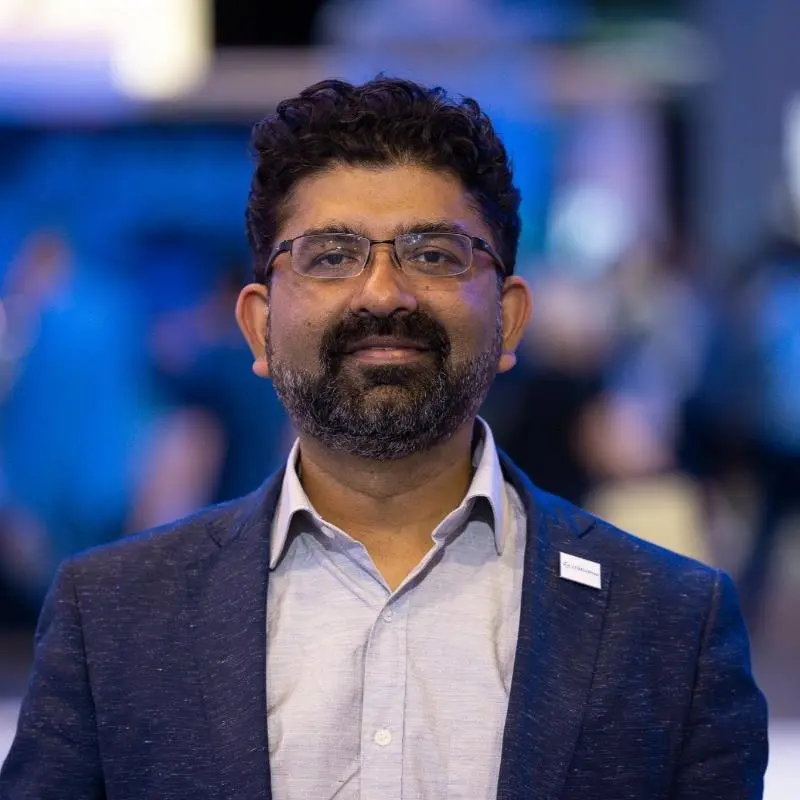
ONLINE COURSE
Applied Generative AI for Digital Transformation
Build with Generative AI. Lead with Intelligence.
Overview
This 8-week online program from MIT Professional Education provides professionals with practical tools to apply generative AI across business functions. Designed for leaders, managers, and professionals from diverse industries, it emphasizes real-world use cases, automation, prompt engineering, and ethical implementation.
Why enroll in this course?

Drive digital transformation in your organization by applying the core principles of generative AI to real-world business challenges.
Use prompt engineering to automate workflows, boost efficiency, and streamline everyday tasks across teams.
Build an AI-ready culture by understanding ethical considerations, governance risks, and responsible implementation strategies.
Explore tools like ChatGPT and other emerging GenAI platforms to enhance productivity and unlock innovation.

Join two live sessions with MIT instructors, plus up to eight interactive sessions with industry experts, learning facilitators, and global peers.

Gain access to curated supplementary resources that deepen your understanding and extend your learning beyond the core modules.
What will you learn?
Learn about the history, development, and current applications of generative AI.
Learn the diverse applications of generative AI across fields such as art, biology, emotional support, and learning.
Understand and implement prompt engineering to improve productivity.
Learn strategies for automating organizational workflows with generative AI.
Understand the dynamics of reinforcement learning and the power of data search in generative AI.
Manage the ethics, compliance, and risks involved in utilizing generative AI.
Understand how generative AI can unlock new digital transformation opportunities for your organization.
Identify your organization’s technological and cultural needs to effectively leverage artificial intelligence.
Course outline
The Applied Generative AI for Digital Transformation program explores how generative AI technology creates original and innovative content, driving an organization's digital transformation. Integrating technical expertise with management insights, ethical considerations, and human factors, this 8-week program offers a holistic understanding of digital transformation strategies powered by artificial intelligence.
The History and Evolution of AI
An Introduction to LLMs
From Words to Meaning: Understanding LLM Architecture
AI Today and in the Future
The Data Challenge
Democratization of Data
Democratization of AI
LLMs: What Can They Do and How Do They Work?
Predicting the Future: Neural Networks
Autoencoders, Latent Spaces & Embedding Spaces
LLMOps
Marketplace
In-Context Learning
Fine Tuning
Conclusion
An Introduction to AI and Ethics
Managing Bias and Ethical Standards
Hallucinations and Disinformation
Scalability, Control and Technology Readiness Levels
Considerations for Regulations
LLM Training Techniques
Diving Deeper Into Retrieval-Augmented Generation
Evaluating Performance of a RAG System
Recent Applications of LLMs
LLM Memory Management
How to Create Advanced LLM Chatbots with OpenAI
Augmented LLMs
LLM Agents
The Future of Jobs
AI Everywhere
Enterprise Strategy Part I
Enterprise Strategy Part II
Building Blocks
Learning and Change in Organizations and People
We Need AI
Gain experience with popular AI tools
ChatGPT – Build with cutting-edge conversational AI
LangChain – Create advanced LLM-powered apps
AutoGPT – Explore autonomous AI agents
Pinecone & pgvector – Power vector search and retrieval
PyTorch & TensorFlow – Train and deploy deep learning models
MemGPT – Work with memory-enabled LLMs
Note: Tools listed are indicative and may be updated as per curriculum enhancements.
Who is this online course for?
Senior leaders in charge of making decisions regarding generative AI initiatives in their organizations.
Technology leaders seeking to master the latest best practices for adopting and optimizing generative AI systems to enhance business outcomes.
Senior and mid-career executives interested in the potential applications of generative AI in their organizations.
Innovation managers, sales and product managers, and marketing and CX professionals seeking to leverage generative AI to create new products, content, and personalized customer experiences.
Venture capital, private equity, and/or pension fund investors interested in the investment opportunities created by generative AI.
Professionals from all industries and sectors interested in joining a dynamic learning ecosystem.
Prerequisites: No prior background in analytics, computer science, coding or machine learning is required.
Instructors

Professor of Information Engineering, Civil and Environmental Engineering; Director, MIT Geospatial Data Center; faculty member, Center for Computational Science and Engineering, Schwarzman College of Computing

Executive Director, MIT Geospatial Data Center; Research Scientist, Center for Complex Engineering Systems, Sociotechnical Systems Research Center, under the Schwarzman College of Computing
Faculty contributor

Professor in MIT’s Department of Electrical Engineering and Computer Science; Head of Computer-Assisted Programming Group and Associate Director and COO of MIT Computer Science and Artificial Intelligence Laboratory
Industry contributors

Deputy Chief Security Officer at GitHub

Chief Information Officer and Senior Vice President of Information Technology and Data Analytics at The Boeing Company

Generative AI Researcher at Runway

CIO and Enterprise Strategist at Amazon Web Services
Participant testimonials







Certificate
All the participants who successfully complete their program will receive an MIT Professional Education Certificate of Completion, as well as Continuing Education Units (CEUs)*.
To obtain CEUs, complete the accreditation confirmation, which is available at the end of the course. CEUs are calculated for each course based on the number of learning hours.
*The Continuing Education Unit (CEU) is defined as 10 contact hours of ongoing learning to indicate the amount of time they have devoted to a non-credit/non-degree professional development program.
To understand whether or not these CEUs may be applied toward professional certification, licensing requirements, or other required training or continuing education hours, please consult your training department or licensing authority directly.
MIT Professional Education in Numbers
+60K
+155
92%
Connect with a Program Advisor for a 1:1 Session
Didn't find what you were looking for? Schedule a call with one of our Program Advisors or call us at +1 315 602 3089.
Register now and boost your professional trajectory.
Enroll by



